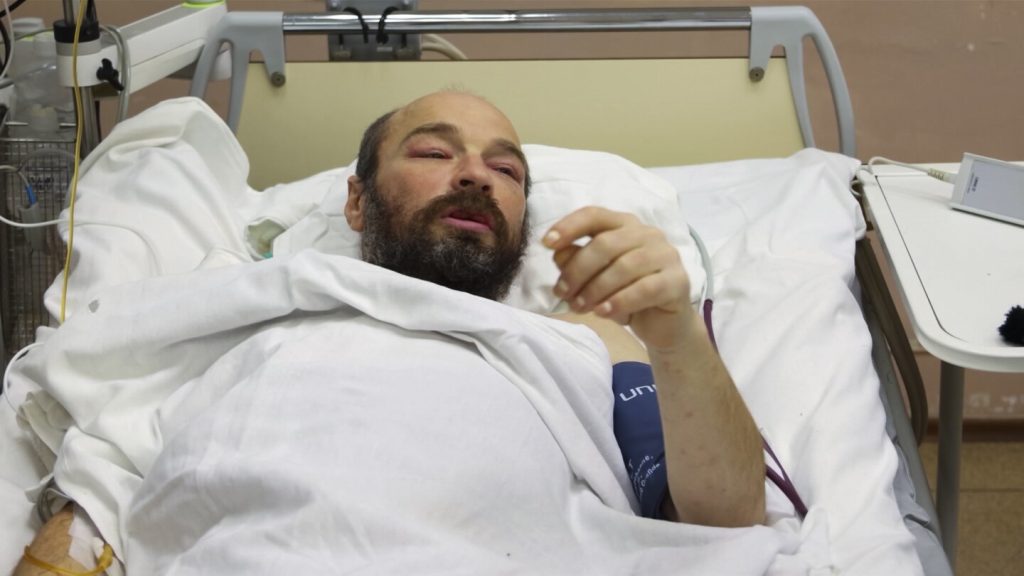A Russian man, Mikhail Pichugin, was rescued after being adrift in a small inflatable boat in the Sea of Okhotsk for 67 days. He had set off with his brother and nephew to watch whales, but their boat’s engine shut down on their way back on August 9. After unsuccessful attempts by emergency services to locate them, Pichugin’s brother and nephew passed away, and he tied their bodies to the boat to prevent them from being washed away. A fishing vessel spotted the boat about 20 kilometers off Kamchatka and rescued Pichugin, who was approximately 1,000 kilometers from their departure point.
Speaking from his hospital bed, Pichugin described how the boat’s engine broke down and one of the oars broke, making the boat uncontrollable. The trio used a phone for geolocation until the battery ran out, but they were unable to attract rescuers’ attention with flares. Pichugin mentioned that helicopters flew past, but they were not able to help. They collected rainwater and struggled to keep warm on the sea off eastern Russia. Pichugin also mentioned that they had a sleeping bag with camel wool, but it was wet and did not dry, so they used it to keep warm.
The trio had a limited supply of noodles and peas and tried to catch fish for food. Pichugin shared that his nephew died of hypothermia and hunger in September, while his brother began behaving erratically and even attempted to jump off the boat at one point. Pichugin credits his survival to God’s help, stating that he had no choice as he had his mother and daughter waiting for him at home. Doctors at the Magadan hospital where he was being treated reported that he was suffering from dehydration and hypothermia but was in stable condition.
The harrowing tale of survival at sea for 67 days highlights the resilience and determination of Mikhail Pichugin. Despite the loss of his brother and nephew during the ordeal, Pichugin’s will to survive and get back to his loved ones kept him going. The challenges he faced, from battling the cold to finding sustenance, showcase the strength of the human spirit in the face of adversity. Pichugin’s gratitude for being rescued and his acknowledgment of God’s help reflect a sense of faith and hope that sustained him through the challenging circumstances.
The incident also raises questions about safety measures for those venturing out to sea, especially in remote areas where rescue efforts can be challenging. The limitations of technology, such as the lack of network coverage for the phone on board, underscore the need for alternative methods of communication and navigation in such situations. Pichugin’s experience serves as a cautionary tale for others engaging in maritime activities, highlighting the importance of preparedness and awareness of potential risks.
As Pichugin continues his recovery and recounts his survival story, it serves as a reminder of the fragility of life and the resilience of the human spirit. His determination to return to his family despite the odds stacked against him is a testament to the power of hope and faith in overcoming seemingly insurmountable obstacles. The community’s response to his rescue also reflects a shared sense of relief and gratitude, emphasizing the importance of coming together in times of crisis to support those in need. Pichugin’s journey serves as a source of inspiration and reflection, prompting us to appreciate the precious gift of life and the bonds that connect us all.















